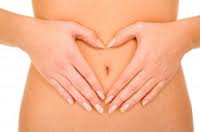Irritable Bowel Syndrome (IBS): Everything You Need to Know
Last updated: March 2025
Do you often feel bloated, have stomach cramps, or need to run to the toilet again and again? If yes, you might be dealing with Irritable Bowel Syndrome, also called IBS. You are not the only one — this problem affects about 1 in every 7 people and can make everyday life hard.
I am a diet expert and have been helping people with IBS for over 30 years. In this blog, I will explain the basics of IBS in a simple way. You will learn about the signs, reasons, how doctors check for it, ways to treat it, and how the right food plan can make a big difference in feeling better.
What is IBS?
IBS (Irritable Bowel Syndrome) is a common condition that affects the stomach and intestines. People with IBS may feel stomach pain, gas, constipation, or frequent diarrhea. In the UK, 1 out of every 5 people has this condition. It is not a dangerous disease, but it can make daily life difficult.
- Key Features:
- Chronic abdominal pain or discomfort
- Bloating and gas
- Diarrhoea, constipation, or both
- Relief of symptoms after bowel movements

Common Symptoms of Irritable Bowel Syndrome (IBS)
Irritable Bowel Syndrome (IBS) can cause many uncomfortable problems in your stomach. One of the main symptoms is abdominal cramping, which means you may feel pain or tightness in your belly, especially after eating. Many people with IBS also have irregular bowel habits. This means sometimes they may have diarrhea (loose, watery stool), sometimes constipation (hard stool), or a mix of both. Another common issue is too much gas, which leads to bloating and a feeling of fullness in the stomach. Some people may also see mucus in their stool, which looks like a clear or white jelly. Along with these, people with IBS often feel tired or sick to their stomach, also called nausea. These symptoms usually get worse when a person is under stress, eats certain foods, or during hormonal changes like before a girl’s period. Even though IBS is not a dangerous disease, it can make everyday life difficult and uncomfortable if not managed pr
✅ Abdominal cramping
✅ Irregular bowel habits (diarrhoea, constipation, or alternating)
✅ Excess wind and bloating
✅ Mucus in the stool
✅ Nausea or fatigue
💡 Symptoms often worsen with stress, eating, or hormonal changes.
What Causes IBS?
Doctors are still not completely sure what causes Irritable Bowel Syndrome (IBS), but they believe that many different things can lead to it. One main reason is a problem in the way the brain and gut work together, called the gut-brain axis. When this connection is not working well, it can affect how the stomach and intestines move and feel. Some people get IBS after having a stomach infection, like food poisoning, which can upset the balance of bacteria in the gut. Others may have food intolerances, meaning their body reacts badly to certain foods like dairy, gluten, or fatty meals. The way the muscles in the intestines move, called gut motility, may also change and cause cramping, diarrhea, or constipation. Stress, anxiety, and strong emotions can also make symptoms worse because the brain sends signals to the gut when you are feeling upset or nervous. All these things together can lead to IBS and make daily life uncomfortable for many people
How is Irritable Bowel Syndrome Diagnosed?
There is no single test that can confirm IBS. Doctors usually find out if a person has IBS by first asking about their medical history and checking all their symptoms carefully. They want to know how long the symptoms have been going on and how often they happen. To be sure it’s not another serious condition, doctors often check for other problems like coeliac disease (a reaction to gluten), IBD (inflammatory bowel disease), or even bowel cancer. This is done using blood tests, stool tests, and sometimes a colonoscopy, which is a test that looks inside your large intestine using a small camera. Doctors also use something called the Rome IV Criteria — this is a checklist of symptoms that helps them decide if it’s really IBS. It is very important not to guess or self-diagnose. If your symptoms keep coming back or don’t go away, you should always talk to a doctor. They can guide you in the right way and help you feel better.
Irritable Bowel Syndrome Types
IBS can affect people in different ways, so doctors divide it into four main types to help decide the best treatment. The first type is called IBS-D, where diarrhea is the main problem. People with IBS-D often have loose or watery stools many times a day. The second type is IBS-C, where constipation happens more often. These people find it hard to poop or have very hard stools. The third type is IBS-M, which means mixed type. This means a person may have diarrhea sometimes and constipation at other times. Finally, there is IBS-U, which means unclassified. This is when a person has IBS symptoms, but they don’t fit clearly into the other three types. Knowing which type you have is important because it helps doctors and dietitians create a plan that works best for your body and symptoms. This way, treatment can be more effective and easier to follow.
Can Diet Help IBS? Absolutely.
As a Dietitian, I often see people try to manage Irritable Bowel Syndrome (IBS) alone — cutting out foods without real guidance. But restrictive diets can backfire.
The Low FODMAP diet is a scientifically proven approach that relieves symptoms in 75%+ of IBS cases when done with a Dietitian.
For those struggling with constipation, a properly implemented low fodmap diet for constipation can provide relief while maintaining nutritional balance.
- Other dietary tools:
- Managing fibre (type + amount)
- Reducing caffeine, alcohol, spicy/fatty foods
- Identifying personal food triggers
- Using gut-healing nutrients (e.g. soluble fibre, probiotics)
- Using tools like our glycemic load calculator to manage blood sugar impacts
- Tracking body changes with Body Shape Calculator
🧠 Personalisation is key — no two guts are the same.
💧 Rethinking Fizzy Drinks with IBS
Many people with IBS turn to fizzy drinks for comfort or energy, but unfortunately, these can be a hidden trigger. Whether packed with artificial sweeteners, added sugars, or carbonation, these drinks can disrupt gut motility, contribute to bloating, and worsen diarrhoea or constipation. Even so-called “diet” or “zero” drinks can wreak havoc on a sensitive gut due to sweeteners like sorbitol or sucralose.
That’s why I often recommend switching to naturally infused sparkling water options like DASH Water — free from sugar, sweeteners, and artificial additives. It’s a refreshing, gut-friendly way to stay hydrated without compromising your progress.
👉 Looking for better drink swaps and gut-friendly picks? Visit my curated favourites in the 121 Dietitian Amazon Shop and make simple changes that support your digestive health.

Lifestyle & Stress Matter Too
Your gut and brain are closely linked, which means how you feel in your mind can affect your stomach and digestion. When you are stressed, worried, or don’t sleep well, your IBS symptoms can get worse. That’s why it’s important to take care of your lifestyle to help your stomach feel better. Eating slowly and paying attention to your food, called mindful eating, can help your body digest better. Doing regular exercise or moving your body every day also keeps your digestion working well. Some people find special therapies like Cognitive Behavioral Therapy (CBT) or gut-directed hypnotherapy helpful because they teach ways to calm the mind and reduce stomach problems. You can also try simple stress relief tools like writing down your thoughts in a journal or practicing meditation to relax. These small changes in how you live can make a big difference in managing IBS symptoms. Stress and IBS
Irritable Bowel Syndrome (IBS) Myths – Let’s Bust a Few
Irritable Bowel Syndrome (IBS) Myths – Let’s Bust a Few
There are many wrong ideas about IBS that can confuse people. One common myth is that IBS is just in your head and not a real illness. This is not true. IBS is a real problem in your digestive system, and it happens because your gut does not work the right way. Another myth is that eating more fiber will fix IBS. But the truth is, not all fiber is the same. There are two types: soluble fiber, which can help, and insoluble fiber, which might make symptoms worse for some people. Lastly, some people think that just cutting out gluten (a protein in wheat) and dairy will cure IBS. However, removing these foods without talking to a doctor or dietitian can cause you to miss important nutrients your body needs. So, it’s important to get proper advice before changing your diet.
❌ “IBS is all in your head”
✅ It’s a real, physiological disorder.
❌ “You just need more fibre”
✅ The type of fibre matters (soluble vs insoluble).
❌ “You can just cut out gluten and dairy”
✅ Unsupervised elimination can lead to deficiencies.
Gut Health Tests -what you need to know
When to Work with a Specialist
If you’re feeling tired, confused, or like nothing is helping your IBS, don’t worry — you’re not alone. This is when getting help from an expert can really make a big difference. At 121 Dietitian, they give personal support that is made just for you. They offer one-on-one consultations with food plans that match your needs. They also have a full 3-month Gut Health Program to help you understand and fix your gut problems. If you’re confused about FODMAP foods, tests, or which supplements to take, they can guide you step by step. They also support you with emotional and lifestyle tips that actually fit into your daily life. You can learn more about their gut health program here: 121dietitian.com/gut-health-course and check out their FODMAP help here: 121dietitian.com/packages/low-fodmaps-for-ibs.

Client Success Story

Jay Rafferty
Take the First Step Toward Feeling Better
If you are tired of dealing with stomach pain, bloating, or bathroom problems caused by IBS, now is a good time to get help. You can explore the 121 Gut Health Program, which is a special plan made just for people with Irritable Bowel Syndrome (IBS). This program is designed by expert dietitians who understand how your gut works and can help you feel better with the right food and advice. You can also book a private meeting with a dietitian who will talk with you one-on-one and make a plan that fits your needs. If you want helpful tips about gut health, you can join our email list too. If you’re ready to start your journey to better health today, we’re here for you.
📅 Book a private consultation:
📧 Join our email list for gut-friendly tips
If you want to book your programme TODAY we would love to help you.
You can book a 121 Dietitian Programme today. Call 07717392306 or email: info@121dietitian.com
Links included in this description might be Amazon affiliate links. If you purchase a product or service with the links that I provide I may receive a small commission.
